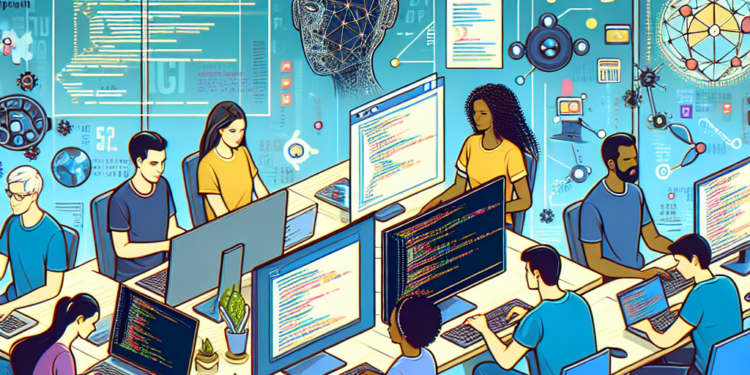Artificial intelligence (AI) has become an indispensable part of the tech industry, playing a key role in automating processes, predicting outcomes, and improving decision-making. With the rapid advancements in AI technology, developers are constantly seeking tools and software to help them harness the power of AI in their projects. In this article, we will explore some of the essential AI tools and software that are a must-have for any developer looking to incorporate AI into their work.
1. TensorFlow: Developed by Google, TensorFlow is one of the most popular open-source AI libraries for building deep learning models. It provides a comprehensive set of tools and features for developing and deploying machine learning algorithms across a wide range of platforms. TensorFlow is known for its flexibility, scalability, and ease of use, making it an essential tool for developers working on AI projects.
2. PyTorch: PyTorch is another popular open-source deep learning library that is widely used by developers for building neural networks. Developed by Facebook, PyTorch is known for its dynamic computational graph feature, which allows developers to easily modify and debug their models. PyTorch also provides a rich set of APIs for building sophisticated deep learning models, making it a valuable tool for developers working on AI projects.
3. Scikit-learn: Scikit-learn is a powerful machine learning library for Python that provides a wide range of tools for data mining, data analysis, and machine learning tasks. It includes various algorithms for classification, regression, clustering, and dimensionality reduction, making it an essential tool for developers looking to explore machine learning techniques in their projects. Scikit-learn is easy to use and well-documented, making it an ideal choice for both beginners and experienced developers.
4. Keras: Keras is a high-level neural networks API that is built on top of TensorFlow and provides a user-friendly interface for building deep learning models. Keras is known for its simplicity, flexibility, and ease of use, making it an essential tool for developers looking to quickly prototype and experiment with different neural network architectures. Keras also supports a wide range of backend engines, including TensorFlow, Theano, and CNTK, giving developers the flexibility to choose the best platform for their projects.
5. IBM Watson: IBM Watson is a comprehensive AI platform that provides a wide range of tools and services for building and deploying AI applications. It includes services for natural language processing, image recognition, speech recognition, and recommendation systems, making it a valuable tool for developers looking to incorporate AI capabilities into their projects. IBM Watson also provides pre-trained models and APIs for common AI tasks, allowing developers to quickly integrate AI functionality into their applications.
6. NVIDIA CUDA: NVIDIA CUDA is a parallel computing platform and programming model that enables developers to harness the power of NVIDIA GPUs for accelerated computing tasks. CUDA provides a rich set of APIs for parallel programming, making it an essential tool for developers looking to optimize the performance of their AI algorithms on NVIDIA GPUs. With CUDA, developers can take advantage of the massive parallel processing power of GPUs to speed up their AI computations and achieve faster training times.
7. Microsoft Azure AI: Microsoft Azure AI is a cloud-based AI platform that provides a wide range of tools and services for building, training, and deploying AI models. It includes services for natural language processing, computer vision, speech recognition, and decision-making, making it a valuable tool for developers looking to leverage AI capabilities in the cloud. Microsoft Azure AI also provides pre-trained models and APIs for common AI tasks, allowing developers to quickly start using AI functionality in their applications.
8. Google Cloud AI: Google Cloud AI is another cloud-based AI platform that provides a variety of tools and services for building AI applications. It includes services for machine learning, deep learning, and data analysis, as well as pre-trained models for common AI tasks. Google Cloud AI also provides APIs for natural language processing, image recognition, and translation, making it a valuable tool for developers looking to incorporate AI capabilities into their projects.
In conclusion, the field of artificial intelligence has seen rapid growth in recent years, with a wide range of tools and software available to developers looking to build and deploy AI applications. From open-source libraries like TensorFlow and PyTorch to cloud-based platforms like IBM Watson and Google Cloud AI, there are plenty of options for developers looking to incorporate AI into their projects. By leveraging these essential AI tools and software, developers can take advantage of the power of AI to automate tasks, predict outcomes, and improve decision-making in their applications.













